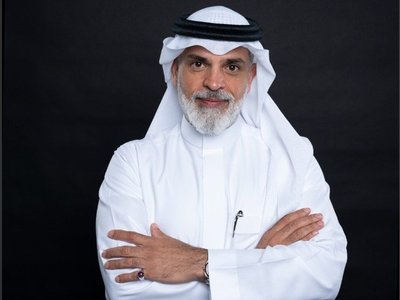
Pentagon official outlines ‘paradigm shift’ in US defense approach to Middle East
The national security interests of Washington are “interwoven in this region,” the official said.
The US will remain engaged in the Middle East, a senior Pentagon official said Wednesday, asserting that the national security interests of Washington are “interwoven in this region.”
“Let’s be clear: America’s commitment to security in the Middle East is strong and sure,” said Assistant Secretary of Defense for Strategy, Plans, and Capabilities Mara Karlin.
Speaking at the Washington-based Middle East Institute, Karlin said the ultimate US mission was to support diplomacy, deter conflict and defend its vital interests. “And if we’re forced to turn back aggression, we will win, and we will win decisively,” she pledged.
US policy and influence in the Middle East have taken a severe hit dating back to the invasion of Iraq and were further dented during the Obama administration.
The Trump administration has also been faulted for failing to help Saudi Arabia respond after Iranian attacks on oil fields in 2019. And after Joe Biden was elected president, several foreign policy moves targeted Gulf and Middle Eastern countries, including an immediate freeze on arms sales to traditional US allies in the region.
Karlin said there was a “paradigm shift” in the US approach to the Middle East, which focuses on de-emphasizing unrealistic aims of transformation that were “often pursued through unilateral military needs.”
Going forward, she said, how the US fights and wins will not be determined by the number of troops on the ground, but rather by maintaining readiness to rapidly respond to any crisis.
The Pentagon official said the paradigm has now focused more on comparative advantages in partnerships and the fundamentals of sound policy, building coalitions, aligning ends and means and setting clear and achievable aims.
“We believe this approach is already paying dividends as the region today, despite its many problems of which we are all deeply cognizant, is about as stable as it has been in a number of years,” Karlin said.
She pointed to the relative calm in Yemen, the further integration of Iraq into the region, the unity within the GCC, and ISIS and al-Qaeda under constant pressure. Without mentioning it by name, Karlin also appeared to reference the recent China-brokered normalization deal between Saudi Arabia and Iran.
Jonathan Lord, director of the Middle East Security program at the Center for a New American Security, lauded the vision for the Defense Department’s presence in the Middle East.
To successfully implement this strategy, there are several challenges, including the need for the Biden administration and Congress to support the new plan’s implementation by embracing Gulf partnerships and addressing these states’ security needs, Lord told Al Arabiya English. “In the region, CENTCOM needs to overcome intra-Gulf state mistrust to build the necessary integrated systems that provide mutual security at scale,” he added.
Karlin stressed that a multilateral approach is needed to advance the bilateral relationships in the Middle East. This includes coordination with regional partners, including “some diplomatic give-and-take.”
Increased transparency between all sides is also needed, as is a US commitment to “be there for our partners when we need to adjust our approach.”
As for what this means for US allies, Karlin said it was vital to synchronize investments in communications infrastructure and defense platforms and capabilities.
“I know everyone in this room is very familiar with the long-standing instincts of some regional partners to diversify defense acquisitions, even if that may distract from their combat effectiveness and contribute to sustainment challenges,” Karlin said, without naming which countries she was referring to.
And the US wants its partners to invest in US and allies’ systems. “Not doing so would undermine our partnerships as well as elements of our strategic approach to the region,” Karlin said.
Karlin called on taking a “hard look” at US arms exports because of their importance to defense integrations and deterrence across the Middle East.
Integration and interoperability are needed to address Iran’s reckless activities across all domains in addition to countering violent extremist organizations.
“We owe it to our partners to ensure a timely, diligent and fair review of each proposed sale,” she said, adding that the Biden administration needs to work closely with bipartisan members of Congress to do this.
Lord said that the US needed partners with greater indigenous military capability to deter shared adversaries if it wants to reduce its military presence. “That means, at some point, Washington is going to need to approve some significant and politically distasteful security assistance. At the end of the day, [the US National Defense Strategy] implementation depends on it.”
“Let’s be clear: America’s commitment to security in the Middle East is strong and sure,” said Assistant Secretary of Defense for Strategy, Plans, and Capabilities Mara Karlin.
Speaking at the Washington-based Middle East Institute, Karlin said the ultimate US mission was to support diplomacy, deter conflict and defend its vital interests. “And if we’re forced to turn back aggression, we will win, and we will win decisively,” she pledged.
US policy and influence in the Middle East have taken a severe hit dating back to the invasion of Iraq and were further dented during the Obama administration.
The Trump administration has also been faulted for failing to help Saudi Arabia respond after Iranian attacks on oil fields in 2019. And after Joe Biden was elected president, several foreign policy moves targeted Gulf and Middle Eastern countries, including an immediate freeze on arms sales to traditional US allies in the region.
Karlin said there was a “paradigm shift” in the US approach to the Middle East, which focuses on de-emphasizing unrealistic aims of transformation that were “often pursued through unilateral military needs.”
Going forward, she said, how the US fights and wins will not be determined by the number of troops on the ground, but rather by maintaining readiness to rapidly respond to any crisis.
The Pentagon official said the paradigm has now focused more on comparative advantages in partnerships and the fundamentals of sound policy, building coalitions, aligning ends and means and setting clear and achievable aims.
“We believe this approach is already paying dividends as the region today, despite its many problems of which we are all deeply cognizant, is about as stable as it has been in a number of years,” Karlin said.
She pointed to the relative calm in Yemen, the further integration of Iraq into the region, the unity within the GCC, and ISIS and al-Qaeda under constant pressure. Without mentioning it by name, Karlin also appeared to reference the recent China-brokered normalization deal between Saudi Arabia and Iran.
Jonathan Lord, director of the Middle East Security program at the Center for a New American Security, lauded the vision for the Defense Department’s presence in the Middle East.
To successfully implement this strategy, there are several challenges, including the need for the Biden administration and Congress to support the new plan’s implementation by embracing Gulf partnerships and addressing these states’ security needs, Lord told Al Arabiya English. “In the region, CENTCOM needs to overcome intra-Gulf state mistrust to build the necessary integrated systems that provide mutual security at scale,” he added.
Use American weapons
Despite repeated vows of US commitment to the Middle East, Arab and Gulf countries have increasingly looked to Russia and China for weapons and other hardware as American bureaucracy has stalled some requests.Karlin stressed that a multilateral approach is needed to advance the bilateral relationships in the Middle East. This includes coordination with regional partners, including “some diplomatic give-and-take.”
Increased transparency between all sides is also needed, as is a US commitment to “be there for our partners when we need to adjust our approach.”
As for what this means for US allies, Karlin said it was vital to synchronize investments in communications infrastructure and defense platforms and capabilities.
“I know everyone in this room is very familiar with the long-standing instincts of some regional partners to diversify defense acquisitions, even if that may distract from their combat effectiveness and contribute to sustainment challenges,” Karlin said, without naming which countries she was referring to.
And the US wants its partners to invest in US and allies’ systems. “Not doing so would undermine our partnerships as well as elements of our strategic approach to the region,” Karlin said.
Karlin called on taking a “hard look” at US arms exports because of their importance to defense integrations and deterrence across the Middle East.
Integration and interoperability are needed to address Iran’s reckless activities across all domains in addition to countering violent extremist organizations.
“We owe it to our partners to ensure a timely, diligent and fair review of each proposed sale,” she said, adding that the Biden administration needs to work closely with bipartisan members of Congress to do this.
Lord said that the US needed partners with greater indigenous military capability to deter shared adversaries if it wants to reduce its military presence. “That means, at some point, Washington is going to need to approve some significant and politically distasteful security assistance. At the end of the day, [the US National Defense Strategy] implementation depends on it.”

